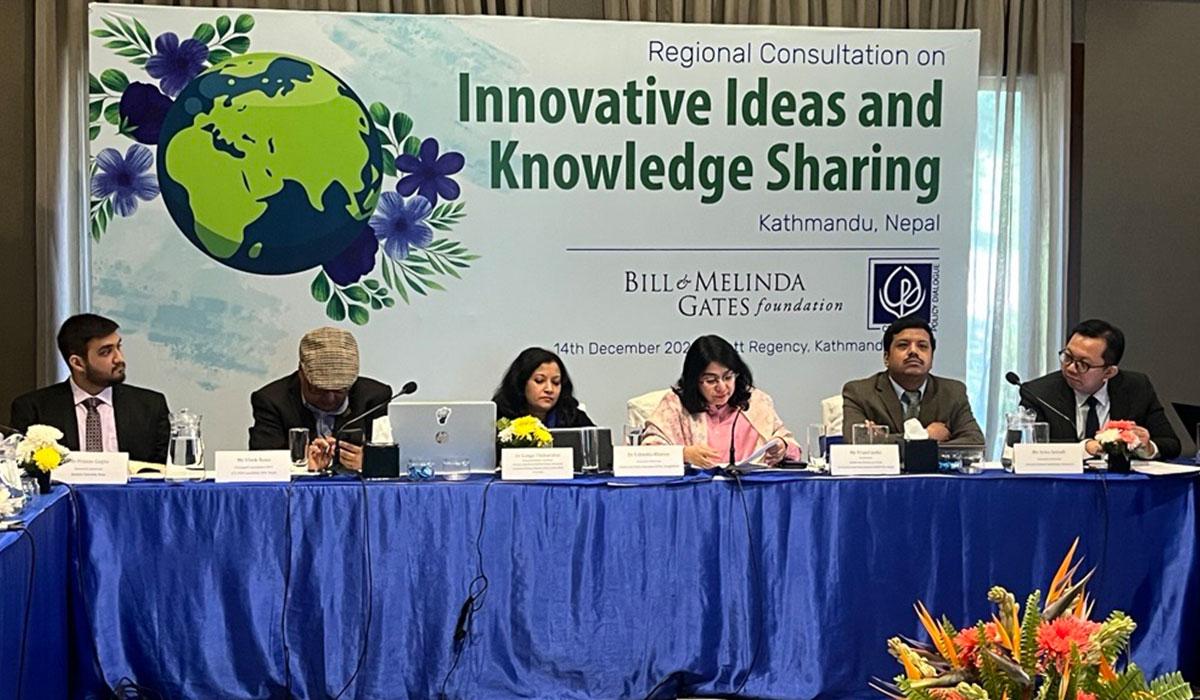
Digital literacy, entrepreneurship, and technology-driven innovations have the potential to create sustainable employment opportunities, particularly in regions grappling with economic inequalities and skill mismatches. With rapid advancements in technology, there is a pressing need to bridge the digital divide, address gender disparities in tech access, and ensure that young people are equipped with the skills required for a transforming labour market. However, challenges such as job displacement due to automation, precarious working conditions in app-based employment, and insufficient investment in education and reskilling remain critical barriers.
The session titled ‘Employment creation through technology in South and Southeast Asia’ brought together policymakers, academics, and industry leaders to address these issues and explore actionable strategies for leveraging digital advancements in South and Southeast Asia. This session was a part of Regional Consultation on Innovative Ideas and Knowledge Sharing held on Saturday, 14 December 2024.
The discussions underscored the importance of integrating digital skills into education systems, promoting public-private partnerships to support entrepreneurship, and implementing policies to formalise jobs and provide social protections for gig workers.
The moderator of the session, Dr Fahmida Khatun, Executive Director, CPD,
stated ‘Technology offers immense potential for creating employment, but it must be accompanied by policies that ensure equitable access, skill development, and social protections. In South Asia, where youth unemployment and skill mismatches are critical challenges, a collaborative approach to integrating technology with education and entrepreneurship is essential for sustainable development’.
Dr Ganga Tilakaratna, Research Fellow and Head of Poverty and Social Welfare Policy Research, Institute of Policy Studies of Sri Lanka (IPS), noted, ‘Digital skills are no longer optional; they are essential for addressing the mismatch in labour markets. From integrating digital literacy into primary education to fostering digital entrepreneurship, governments must act decisively to prepare young people for the opportunities and challenges of the digital economy’.
Mr Aries Setiadi, Executive Director, Indonesia Fintech Association, added, ‘Indonesia’s digital economy is growing at an impressive pace, supported by initiatives such as regulatory sandboxes and innovation hubs. These efforts not only create jobs but also empower young people to become leaders in technology’.
From Nepal, Mr Vivek Rana, Principal Consultant GRCP, ICT/MIS Consultant ADB, commented, ‘Digital public infrastructure is crucial for creating an equitable playing field. While Nepal is making significant progress, challenges in scaling technology to rural areas and ensuring financing for IT startups remain critical issues’.
From India, Mr Pranav Gupta, Research Associate, JustJobs Network, emphasised, ‘Technology creates work but not always stable jobs. To address this, we must focus on foundational skills, improving digital inclusivity, and ensuring fair labour standards in emerging sectors such as app-based employment’.
Mr Prajol Joshi, Economist, South Asia Watch on Trade, Economics and Environment (SAWTEE), Nepal, remarked, ‘South Asian countries must prioritise skilling, upskilling, and reskilling initiatives. Partnerships between educational institutions and industries can better prepare young people for digital opportunities and help address skill mismatches’.
The event concluded with a consensus on the importance of integrated regional strategies to maximise technology’s potential for job creation. Participants highlighted the need to overcome barriers such as gender inequality in digital access, insufficient investment in quality education, and the absence of social protection policies for gig workers.


